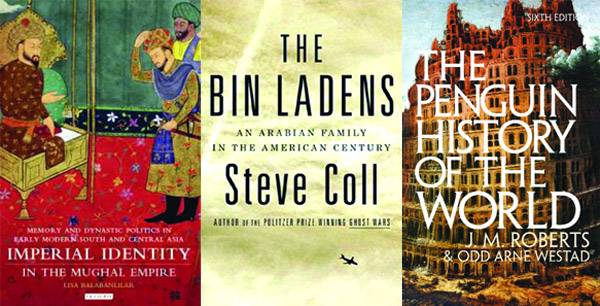
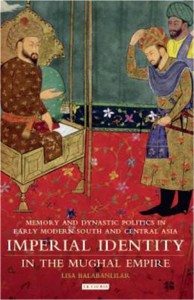
Imperial Identity in the Mughal Empire
Lisa Balabanlilar
Viva (hardback), 2013
PRs 3,680
Having monopolised Central Asian politics and culture for over a century, the Timurid ruling elite was forced from its ancestral homeland in Transoxiana at the turn of the 16th century by an invading Uzbek tribal confederation. The Timurids travelled south: establishing themselves as the new rulers of a region roughly comprising modern Afghanistan, Pakistan and northern India, and founding what would become the Mughal Empire (1526–1857). The last survivors of the House of Timur, the Mughals drew invaluable political capital from their lineage, which was recognised for its charismatic genealogy and court culture, the features of which are examined here. By identifying Mughal loyalty to Turco-Mongol institutions and traditions, Lisa Balabanlilar positions the Mughal dynasty at the centre of the Early Modern Islamic world as the direct successors of a powerful political and religious tradition.
What people are saying
“Lisa Balabanlilar makes an important contribution to the study of South Asia, Central Asia, and world history by clearly demonstrating that the Mughal dynasty viewed itself as not a new dynasty, but a continuation of the Timurid Empire” (T. M. May)
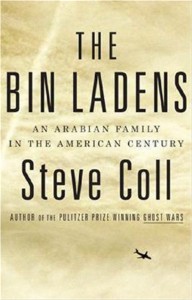
The Bin Ladens
Steve Coll
Penguin (hardback), 2008
PRs 1,425
In The Bin Ladens, two-time Pulitzer Prize-winner Steve Coll continues where Ghost Wars left off, shedding new light on one of the most elusive families of the twenty-first century. Rising from a famine-stricken desert into luxury, private compounds, and even business deals with Hollywood celebrities, the Bin Ladens have benefited from the tensions and contradictions in a country founded on extreme religious purity, suddenly thrust into a world awash in oil, money, and the temptations of the West. But what do these incongruities mean for globalisation, the War on Terror, and America’s place in the Middle East? Meticulously researched, The Bin Ladens is the story of a remarkably varied and often dangerous family that has used money, mobility, and technology to dramatically different ends.
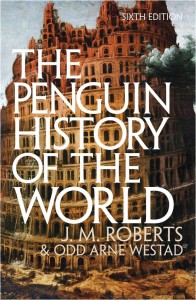
The Penguin History of the World
J. M. Roberts and Odd Arne Westad
Penguin (paperback), 2014
PRs 2,250
For generations of readers, The Penguin History of the World has been one of the great cultural experiences - the entire story of human endeavour laid out in all its grandeur and folly, drama and pain in a single authoritative book. Now, for the first time, it has been completely overhauled for its 6th edition – not just bringing it up to date, but revising it throughout in the light of new research and discoveries, such as the revolution in our understanding of many civilisations in the Ancient World. The closing sections of the book reflect what now seems to be the inexorable rise of Asia and the increasingly troubled situation in the West.
J. M. Roberts published The Penguin History of the World in 1976 to immediate acclaim. His other major books include The Paris Commune from the Right, The Triumph of the West (which was also a successful television series), The Penguin History of Europe and The Penguin History of the Twentieth Century. Odd Arne Westad is Professor of International History at the London School of Economics. He has published fifteen books on modern and contemporary international history, among them The Global Cold War, which won the Bancroft Prize, and Decisive Encounters, a standard history of the Chinese civil war.
What people are saying
“A work of outstanding breadth of scholarship and penetrating judgements” (Lord Jonathan Sumption, Sunday Telegraph)
“A stupendous achievement” (A. J. P. Taylor)
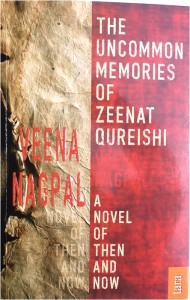
The Uncommon Memories of Zeenat Qureishi
Veena Nagpal
Tara Indian Research Press (paperback), 2013
PRs 595
Two young cousins hell-bent on restoring Muslim glory, even if it means importing terror. An incendiary Hindu religious leader with one mantra: break-mosques, build-temples. Zeenat Qureishi has one question, what’s my name? Why can’t you tell me my name? Traumatised in the aftermath of the London Tube bombing, the phobic 20-year-old comes to India. Long before Zeenat was born, the eldest Qureishi brother, his wife, and six-year-old daughter Zainab were murdered. Zeenat’s family believed the Mehras, their Hindu family friends, responsible and the friendship turned sour. Wild and impetuous Zeenat promptly falls in love with Ajay Mehra. Faced with proof that he was involved in the demolition of a mosque, she scorns him. Disturbed, Zeenat undergoes regression therapy in an atmosphere of paranoia and uncovers memories so powerful that she can project them. Communal bitterness that has simmered for centuries threatens to explode around her and Zeenat tries to find answers in the past that will help her understand and heal the present.
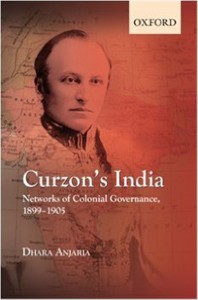
Curzon’s India
Dhara Anjaria
Oxford University Press (hardback), 2015
PRs 995
George Curzon was ‘post-mutiny’ India’s most imperialistic viceroy. From 1899 to 1905, he attempted to single-handedly implement a 12-point reform programme designed to optimise the efficiency of administration, eliciting fierce opposition and support from the other diverse constituents of the Government of India. The book examines two basic, intersecting themes that defined the course of Curzon’s viceroyalty of India: executive power and the checks upon it. Anjaria analyses the degree to which the major constituent components of the Government of India successfully delineated and fenced in the boundaries of viceregal power on their own, and the extent to which they collaborated with each other to do so, with reference to internal administration.
The book explores the factors that helped and hindered Curzon in his quest to integrate these disparate elements that made up the Government of India into an efficient administrative framework, which ran along the lines he wished. Also explored in the book are Curzon’s relations with Lord Ampthill, his longest serving governor and locum in 1904, which illustrate the evolution of a relationship that started off in expected acrimony, but evolved into a partnership of mutual respect and administrative collaboration.

